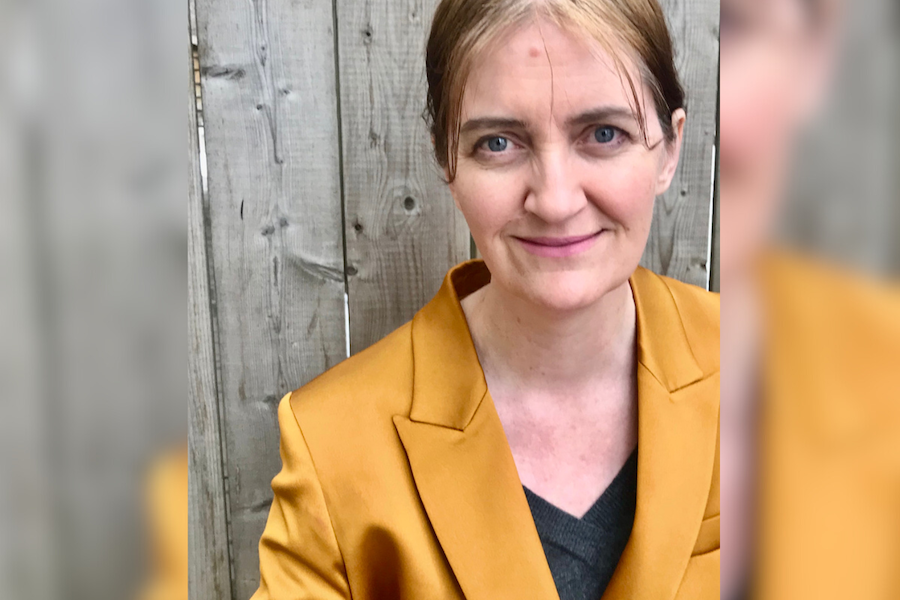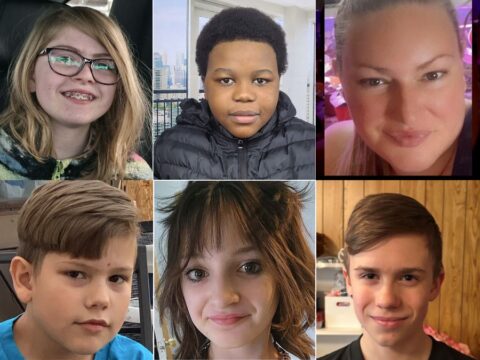Emma Donoghue’s acclaimed novels include Room, The Wonder and Haven. Her latest fiction, Learned by Heart, is an evocative tale of the real-life romance between diarist Anne Lister and her first girlfriend, Eliza Raine, at a boarding school in Yorkshire, England, in the early 1800s. Lister — often dubbed “the first modern lesbian” — has recently received more attention as the lead character of the HBO series Gentleman Jack, whereas Raine is largely unknown. Learned by Heart takes her out of the shadows while also offering a piercing love story that explores questions of race, queer love and gender identity in 19th-century England. Donoghue spoke to Mzwandile Poncana.
MWANDILE PONCANA: Anne Lister is one of the primary characters in the novel. Could you tell me about the historical material you relied on to develop her character?
You may unsubscribe from any of our newsletters at any time.
EMMA DONOGHUE: I’m so grateful to the handful of historians who have gone into this huge archive of Anne Lister’s diaries. These diaries were written in very difficult-to-follow handwriting, with coded sections, in a series of books that are held in Halifax in Yorkshire. Without that body of work, this novel wouldn’t exist. It’s an attempt to imagine what she might have been like at 14, based on her diaries, which last from her 20s into her 40s.
MP: In the novel’s afterword, you mention that Lister has played a significant role in your life. What has she represented to you?
ED: My first non-fiction book [in 1993] was an attempt to answer the question of how Anne could have possibly developed this confident queer identity as a mannish woman who loved women back in the early 1800s. What she represented to me was the rich possibilities of the past. Queer people in each generation have felt that maybe our generation was the only one. So to find a long history, and one so unpredictable and dazzling as Anne Lister’s, it made me feel super-powered. We were always there and always interesting.
MP: How did you tackle presenting queerness in a time when there was little terminology to label different identities and gender expressions?
ED: You might think it’s a challenge that there were few labels back then, but actually, for a fiction writer, that’s thrilling, because it means you get to show queer lives in action without things fitting into neat identity categories. What I love about Anne Lister is that she’s got a whole new trans audience appreciating her these days, too, because she was so consistently bold in her gender outlawry.
MP: Gender non-conforming people are facing increased hate and discrimination, and LGBTQ2S+ books are now the target of bans. How do you feel about your novel being released in this context?
ED: These times are turning so scary. We read such absurd and Kafkaesque stories of new persecutions against drag queens, for instance. Drag, in a sense, is everywhere in performance history, so the idea that suddenly there’d be new laws against it feels dystopian.
More than ever, it feels absolutely crucial to have my input into the culture via publishing queer novels. I’m not saying it’s going to change the world as directly as activism does, but it’s my vocation, it’s what I do well, and I think nothing changes people so much as a novel.
A novel is a kind of machine for empathy. And if you can get a novel like Learned by Heart into the hands of readers who might otherwise be resistant to what it’s saying, I think it can make them feel what it’s like to be young and queer from within. For that reason, I hope in particular that this book reaches a lot of young readers.
MP: Yes. As a queer person myself, queer literature has helped me feel so much less alone.
ED: Me too. I remember as a schoolgirl in Ireland in the 1980s, when I came across writers like Virginia Woolf or Emily Dickinson, their work was like reading this secret message, passed from hand to hand: “Don’t let them grind you down; don’t let them make you the same as everybody.”
More on Broadview:
- New books by LGBTQ2S+ Muslim authors prove you can be queer and follow Islam
- Why anti-LGBTQ2S+ protests are hurting racialized trans and queer people in faith communities
- These United Church members showed up to say no to anti-LGBTQ2S+ protests
MP: Eliza Raine isn’t as well known as Anne Lister, yet the story focuses on her perspective as an orphaned Anglo-Indian heiress. Why did you make that choice?
ED: Anne is famous already, and I feel that the less-well-known characters need me more. It gives me a burning mission to bring them to the world. I also find it really fun to write about people who are not famous.
I love the little facts that you can pick up on during research and turn into whole scenes. There are maybe just two references in Anne’s diary to Eliza liking cakes, so I tried to depict Eliza craving desserts in different points of the book.
These neglected characters also make really good observers, and I wanted somebody observing society in early 19th-century England and noticing all the subtext. Especially with Eliza and her mixed-race identity, I wanted someone noticing the microaggressions. I was curious about what life was like for her as the only brown-skinned person in that town.
MP: Your mention of microaggressions reminds me of a quote in the book: “Bias rarely declares itself … you have to peer through a veil, strain to hear the faint note, scent to trace the lingering in the air.” Was it important for you to bring this subtle discrimination to the forefront?
ED: Absolutely. Anne had many girlfriends, but Eliza is the only one who ended up institutionalized for life. It can’t be an accident that it happened to the one girl- friend who wasn’t white. Furthermore, quite a few women were sent to asylums at some point, but they didn’t all get stuck in there. I feel like everybody gave up on her, and that could easily have been because of racist attitudes.
When trying to understand the possible correlation between Eliza’s mental illness and her identity, I found a brilliant article about schizophrenia rates being very high in visible minorities who were living isolated in otherwise very white areas. Being surrounded by hostile white people as the only minority has slow, destructive effects on the psyche, especially if you’re always second-guessing whether or not what you faced is actually discrimination. So that’s what I wanted to highlight: it’s not like anybody committed a violent hate crime against Eliza, but there’s this awful low-level aggression that I’m showing her living with day by day.
MP: In the novel, Anne recounts Plato’s story of the soulmate. He wrote that human beings were originally two people conjoined — some with the opposite sex, some with the same sex — and then they were split into two. Now they have to spend the rest of their lives finding their other half. Why did you choose to include it?
ED: I actually hesitated to include it because of how common a tale it is — it’s often been mentioned as a kind of “queer origin tale.” But on the other hand, it shows what an ancient idea — even within western culture — this was. The idea that maybe we’re just born this way. Through some quirk of the gods, for some of us the other piece we have to find is of the same sex. I thought Anne Lister, being so well read, would certainly have come across the story and latched on to it.
I suppose what I’m showing is that books feed us and are the building blocks of our characters. Just as finding Anne Lister’s diaries was crucial to me forming my identity at about 20, her reading Plato did the same thing. And especially if you’re surrounded by hostile school boards in Florida banning books, if you find a story that makes your life seem meaningful and that has dignity, that can be literally life saving.
As queer people, in every generation, we’ve relied on old stories to teach us that we’re not going anywhere — we’re part of humanity and always have been.
The interview has been edited and condensed for length and clarity.
***
Mzwandile Poncana is a journalist and writer in Montreal.
This story first appeared in Broadview’s October/November 2023 issue with the title “Always Dazzling.”














